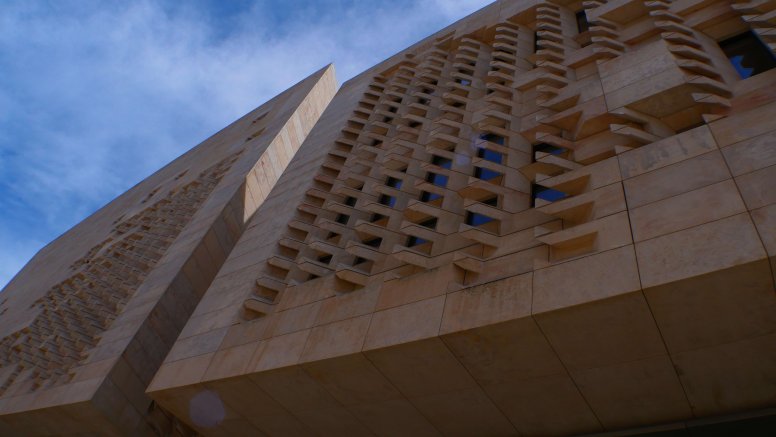Billionaire Platform Society and You

A time will shortly be upon us when we must decide, make a choice about how we might want our interweb to look and be in the near future and beyond. I think it boils down to a single catch-all choice: who owns the content and interactions of the Internet. This choice isn't new, it's been bubbling up for at least a decade, with well known critical voices from various pieces of the argument like Stephen Downes or Jaron Lanier flagging up the big problems we have created for ourselves. The choice needs to be made at national, supranational-global level, for data law and content repository building and curation in perpetuity. It also needs to be made at personal, individual level, and that means you.
It's politics with a big $
Essentially this is a political decision. This isn't about which app you want or even which server your content is hosted on, it isn't about free or open or whataver. It's about Big Tech and society: the billionnaire empires that have forged monopoly platforms and services through vast venture capital investment, embedded enterprise technology infrastructure and relentless positive media coverage. This has impacted every major aspect of life: education, work, recreation, creativity and has encouraged many people to think of Big Tech Platform monopolies as benign generous helpers. But the truth is very different. Shown up in stark contrast to this view most recently is the Elon Musk style of private ownership of Twitter, doing as he pleases, with total impunity.
Ask a question: what would need to happen for you to feel uncomfortable about using a given service or platform? What would happen if a given platform would suddenly withdraw all its free services? How would you feel if all your digital content, followers and networks were just deleted, without your say in the matter? No Twitter, or Facebook, or Gmail, Hotmail or free Outlook. No Google Docs. These questions are beginning to be much more important than they seemed a decade ago (to most of us). We have all played our part in building the Oligarch Internet. I myself am guilty of idealism, and exorting my university to embrace social media (Facebook, Twitter and others) for both internal and external communications. But I was wrong. I'm currently watching a conversation taking place on Mastodon with @atomicpoet, aka Chris Trottier, a prominent Hootsuite developer, who voiced his own similar feelings of guilt the other day. We are all complicit. But, the time has now come to make better and more informed decisions.
A way forward with the Fediverse
There are various discussions going on that have been going on for some time, about something called the Fediverse. This is a world of many software applications supporting a diverse set of ideas and communities, all based on the principle of openness and interoperability. You may have heard of Mastodon - the biggest and most well known of these applications - but there are many others. So, let's go a bit further back to explain what's going on in this world of Fediverse.
The Fediverse is based on the idea of 'federated networks'. That means communities of people communicating in networks hosted on different servers with different applications and functions, that are all connected together, and can 'speak to each other'. Let's give an example:
- I set up my microblog account called Fabgirl at server A, using the application Mastodon
- You set up a microblog account called Badboy at server B using the application Friendica
- Server A and Server B are 'federated' so they can connect easily (seamlessly). So Fabgirl and Badboy can follow each other, and see and share each others posts.
- We follow each other via our mobile app of choice (there are many, I use Megalodon for Android, but Tusky is great. iOS users use Ivory or the Mastodon main client. Windows uses Sengi or Elk. Mac can use Elk too. These are all lovely high quality user experience apps).
- I share a post into the network called 'fab fediverse girlnerds'
- You see the post and share (reblog, or retoot) 'fab fediverse girlnerds' to all your followers and a few of them also share the post. Other people in your network who might be on other servers and other software applications (Misskey, Friendica, Lemmy, Pleroma and more) might see 'fab fediverse girlnerds', and reply to it, or reblog it, and so on. Some might even follow me if they like the post :)
- Everyone is connected by who they follow, and who follows them, and who those other people follow. And many of those people are hosted on different servers and may often use different applications, but can still be connected.
- This is called a federated network, and the Fediverse is all the different applications that can do this, forming a federated universe.
Get the idea? Its like multiple types of Twitter (for example) all talking to each other in common feeds built by who is following who, not by an algorithm. The most common comparison is how email works.
Is Mastodon just Twitter for Nerds?
It's important to say at this point in time that the Fediverse in general and Mastodon in particular is not just a replacement for Twitter. It's a different world, it's better in nearly all ways, made by 'human scale' open approaches and technical protocols. There are a few technical limitations, but there are many technical advantages that outweigh the limitations.
- First, it's free of adverts, promoted posts, biased algorithms (there are no algorithms at all).
- Your identity (account(s) are yours to move wherever you'd like that will have them.
- Likes, shares and comments are not rewarded with higher prominence in feeds. There is no reward for interactions. You do it because you like to, it has actual meaning.
- The Fediverse is made of many different applications, not just Mastodon. Mastodon is just the biggest. Lemmy is a very prominent tech nerd app, Misskey is a hugely popular Asian Fediverse app.
The coming Platform Monopoly Wars
This has already begun. New federated private protocols and app development seen in BlueSky and Nostre are great examples of the federated model wars hotting up. Bluesky is funded largely by Jack Dorsey, late founder of Twitter, an old style socmed oligarch who encouraged Twitter to be sold to Musk. He wants to build alternatives to Twitter that are more closed app walled gardens, with their own protocols for sharing that are not interoperable with free and open Activitypub. Meta are moving towards creating their own version of federated socmed, based on Instagram accounts that might be interoperable with Activitypub Fediverse 'handshake' (connection) protocol. This is hard to say. But these are private enterprise getting in on the act, and that's fine, unless it really damages and threatens the open federated model, in the way that big money has torn down and destroyed all competition to create their monopolies in the first place - see Microsoft extreme competition destruction, eg here, or the ad hoc AR apps that one by one were removed to permit big players like Hewlett Packard to dominate the field. There's a term for this kind of economic competition destruction but I can't remember it.
This is a very significant moment therefore in Internet history. Private finance is now eying big Fediverse apps and servers with greedy rubbing of hands - surely there are millions of dollars to be made with this approach? Yes, there are. And it's a problem, but it may be a controllable problem, especially if people in positions of power or influence recognise this. Things are already dividing into private big money backers versus ordinary folks. Both sides have advantages and disadvantages, depending on where you stand, and the issues are not really very simple. Trust may be a big part of it, as well as thingslike data privacy,security, reliability, and right to own identity (concepts such as Nomadic Identity).
It isn't possible to cover everything in one post and believe me, there are many articulate voices in this sphere who are attempting to capture and discuss the issues, challenges and possible solutions. Many of these folks are the Good Tech forces that built your internet in the first place.
This will likely grow to one in a series of discussion posts about the Fediverse.
Links
Links will be added to the aricle for
- How to join Mastodon
- What is the Fediverse
- What is PixelFed
- Higher Education and the Fediverse
Full size image (click)
 The Renzo Piano Parliament building, Valletta, Malta. A perfect example of a walled garden.
The Renzo Piano Parliament building, Valletta, Malta. A perfect example of a walled garden.